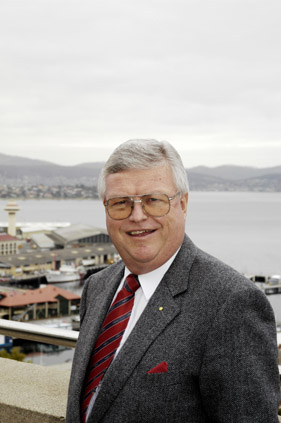Indigenous tourism Australia gets big boost

Exclusive interview with John King chairman Australian Tourism Export Council
John King chairman of ATEC talks to Valere Tjolle about the upcoming Pacific-Asia Indigenous Tourism Conference.
Valere Tjolle: How do you characterize indigenous people’s involvement in tourism, currently?
John King: In the majority of cases around the Pacific Asia region, Indigenous tourism is more a niche product in the margins of mainstream tourism. In some cases it is used by tourism operators to add ‘colour and movement’.
VT: How could this change?
JK: Ideally, Indigenous people’s culture and participation will be a core part of each country’s tourism experience, where identifiable Indigenous communities and culture exist. If this occurs it will enrich visitor’s experience, preserve living cultures, better differentiate destinations and help in poverty alleviation and creating economic independence.
VT: What is your vision for indigenous tourism in Australia?
JK: Similar to the above. The first step is to encourage the involvement of existing Indigenous tourism operators to fully participate as industry partners and to be involved in mainstream industry business networks. Already my own organization is fostering this step with around 20 Indigenous operators as full members of ATEC; and secondly by establishing the National Indigenous Tourism task Force within ATEC to recommend to the Board and undertake programs and policies to further develop and integrate Indigenous tourism within the industry.
The second step is to provide more job opportunities for Indigenous people within the tourism and hospitality industries to give them greater understanding of the nature and requirements of tourism and experiene in operating commercial tourism businesses.
VT: What benefits will tourists gain from a higher input from indigenous peoples?
JK: All surveys of Inbound tourists to Australia indicate that many visitors seek more contact and interaction with Indigenous people. In addition, in an increasingly homogenous world, many visitors are increasingly seeking unique and authentic experiences. The further development and mainstreaming of Indigenous tourism delivers on all these drivers and desires. In addition, surveys also show that those who have participated in meaningful Indigenous experiences express very high satisfaction levels.
VT: Are there any current best practice examples that you can quote from around the world, and in Australia – that you would like to emulate?
JK: As a country, New Zealand is a standout where the Maori culture is an integral part of the overall tourism experience and brand. In Australia there are now over 20 Indigenous owned and operated tourism businesses actively and successfully involved in the inbound market, but in most cases they have some way to go to be fully viable and sustainable businesses.
VT: Have you approached the UNWTO (and/or other UN agencies) and, if so, are they supporting this initiative?
JK: The UNWTO has supported the conference from the outset and will be using the event to unveil some important research on tourism and intangible cultures. The Secretary General has agreed to participate in the conference via video presentation.
VT: Can you give examples of other partnerships you’ve formed, both in Asia/Pacific and worldwide?
JK: The conference in itself is the product of a partnership between the Australian Tourism Export Council, Tourism NT, and the Pacific Asia Travel Association. As a result of the conference we hope that one of the outcomes will be a greater partnership and networking between organizations representing Indigenous tourism interests in the Pacific Asia region.
VT: What response have you had thus far from the Australian travel trade? The global travel trade?
JK: There is already strong interest by Australian tourism operators. Within ATEC there are already almost 200 operators who have identified an existing interest and involvement in Indigenous tourism. We are seeking interest from the global travel trade through PATA and other travel networks both within the Pacific Asia Region and its key markets.
VT: From which areas of tourism practice will delegates come, and from which countries?
JK: We expect that at least half the attendees will come from within Australia. Already we have had expressions of interest from widely diverse areas such as Nepal, Peru, the Philippines, North America, Pacific Islands, New Zealand and from areas beyond the Pacific Asia region such as the UK. We are expecting Indigenous people and their representative organizations, tourism operators, industry and their representative bodies, governments and government agencies, multilateral and development agencies and NGOs, universities and research bodies as well as national parks and heritage agencies.
VT: What sort of issues will the Darwin Declaration encompass, and what is your hope for it?
JK: We envisage the conference will culminate with a “Darwin Declaration on Indigenous Tourism” that will establish principles for the development of Indigenous tourism and its incorporation into mainstream tourism activities.
Whilst the content of the Declaration will be guided by the conference discussions, it is envisaged it will relate to the establishment of the role of tourism in Indigenous advancement and cultural preservation, as well as providing vehicle for promoting cultural understanding, tolerance and peace.
In addition it could also include respect for cultural integrity, the importance of establishing true partnerships and policies that support equable integration of Indigenous tourism operators within the wider tourism industry. It could also establish the basis upon which a dialogue is established by Indigenous people around the region to share insights and experiences and a greater sharing of valuable research and information currently held in isolation in many instances.
More info at: www.paitc.com
See also: www.travelmole.com/stories/1145183.php
Valere Tjolle
Valere Tjolle is editor of the Sustainable Tourism Report Suite – special offers HERE
 United Kingdom
United Kingdom United States
United States Asia Pacific
Asia Pacific












































Dozens fall ill in P&O Cruises ship outbreak
Turkish Airlines flight in emergency landing after pilot dies
Boy falls to death on cruise ship
Unexpected wave rocks cruise ship
Woman dies after going overboard in English Channel